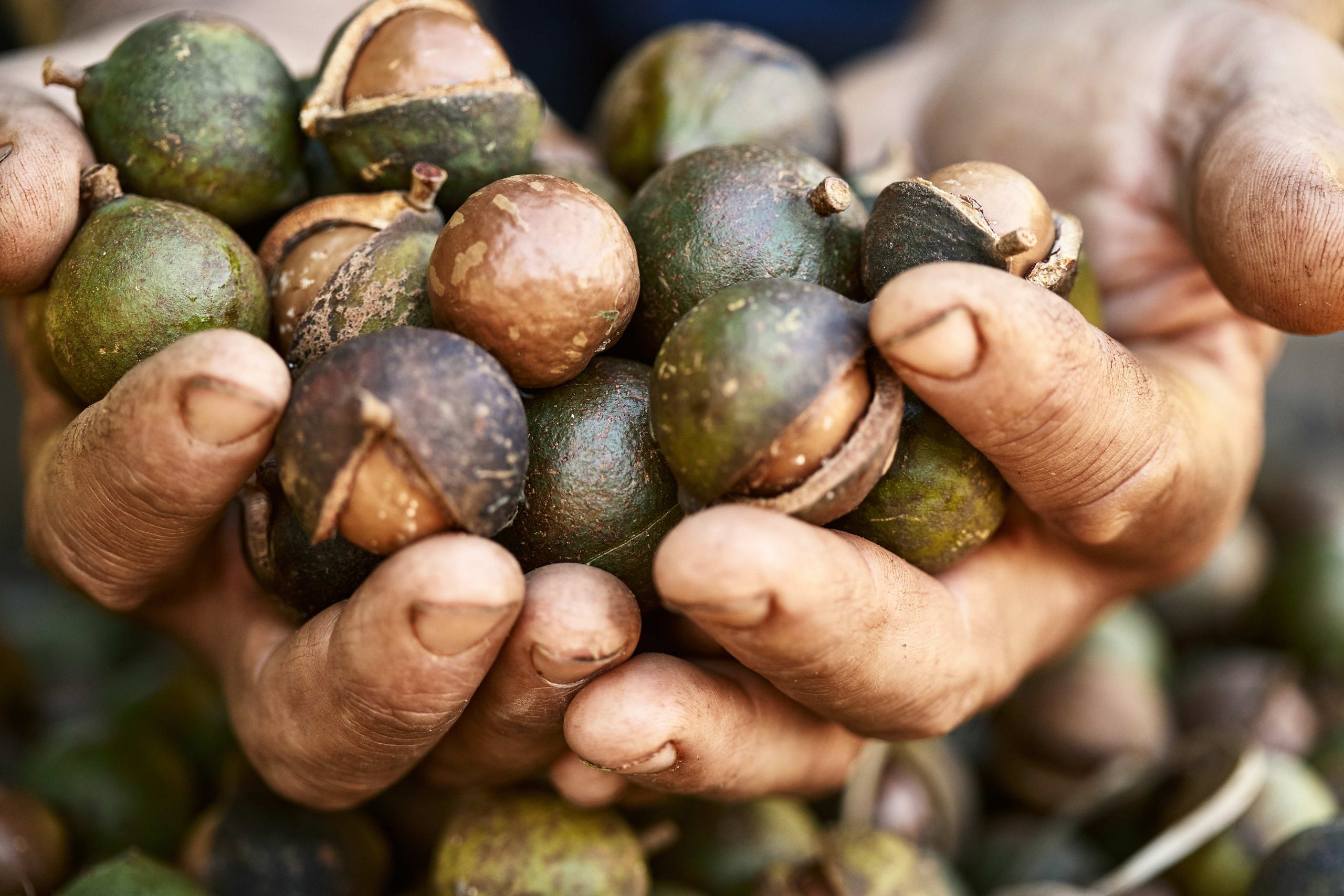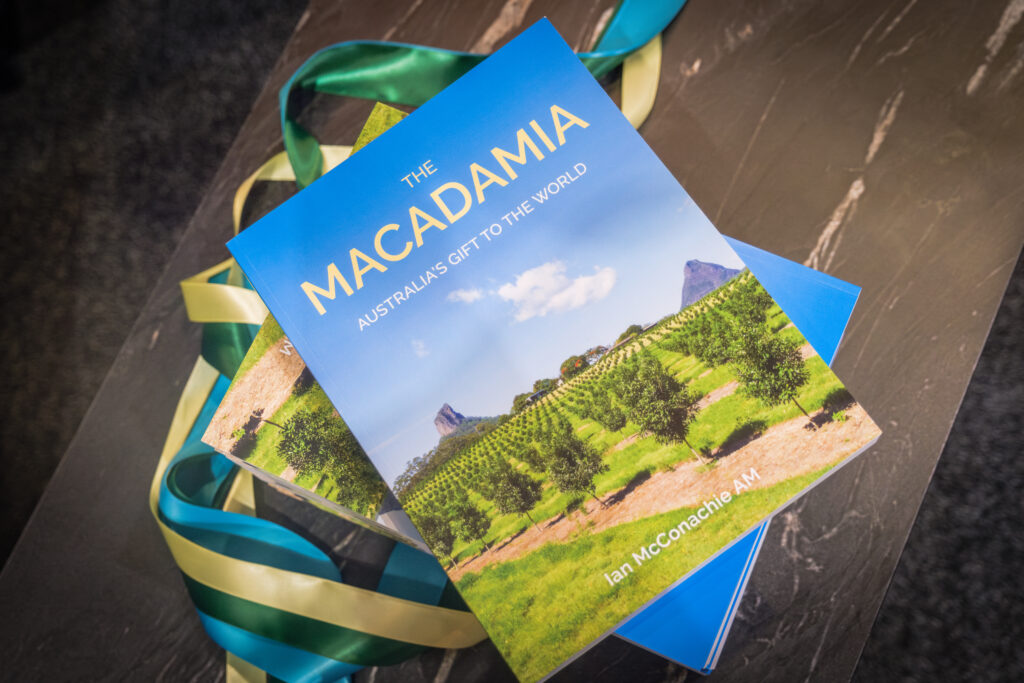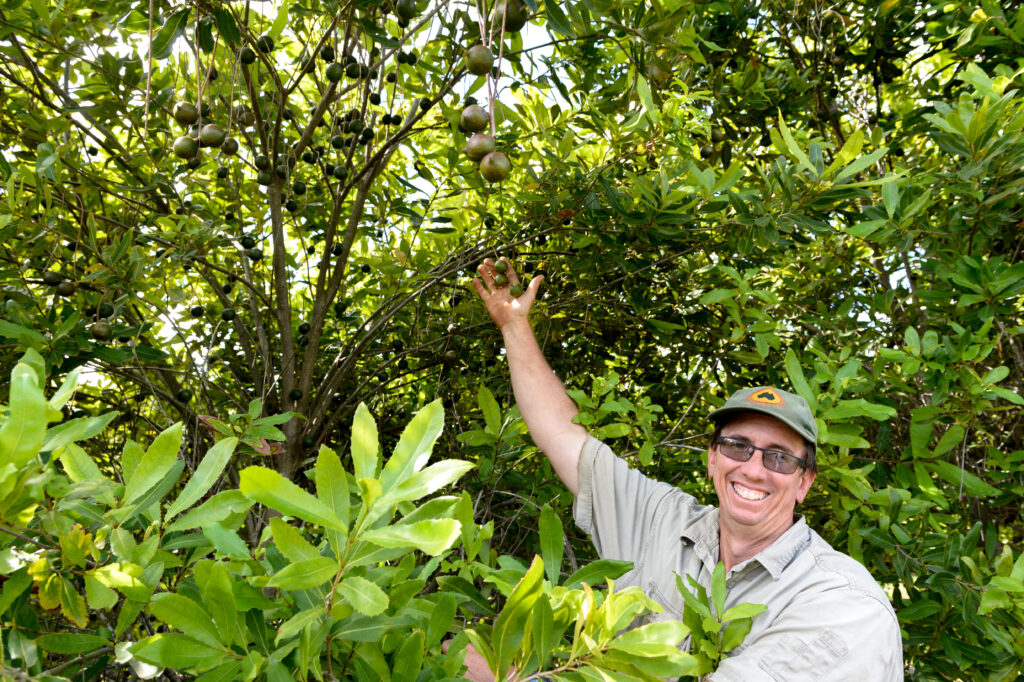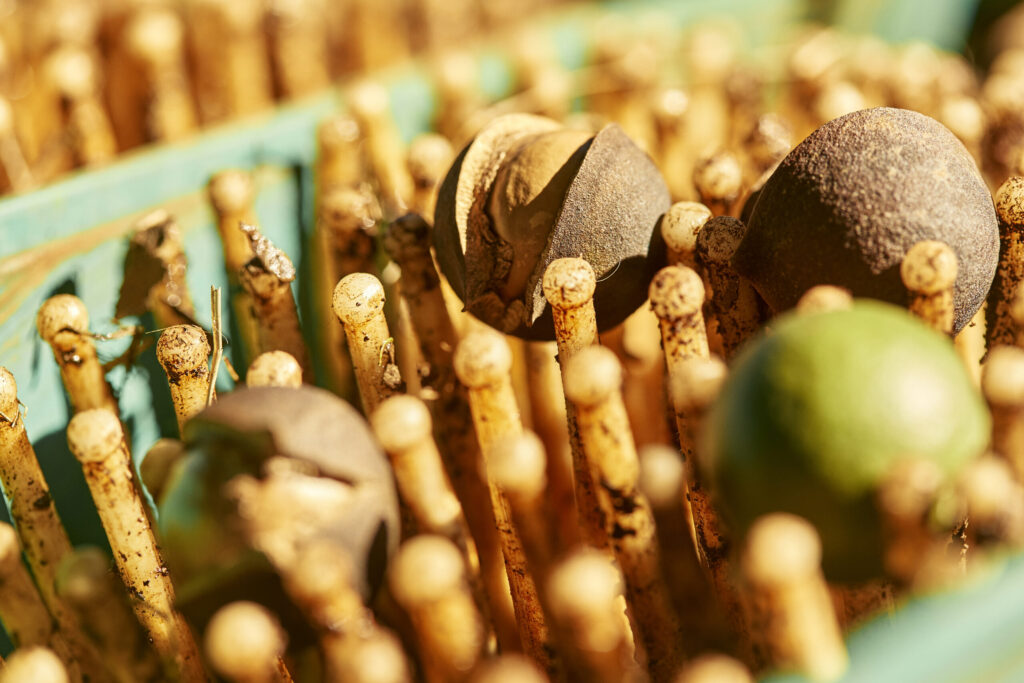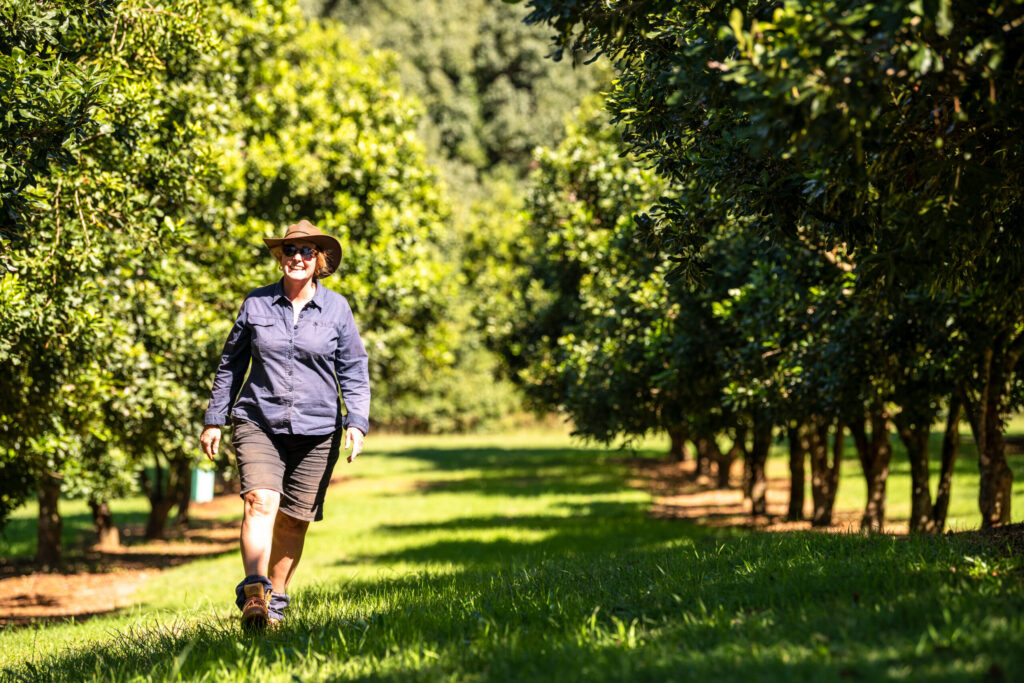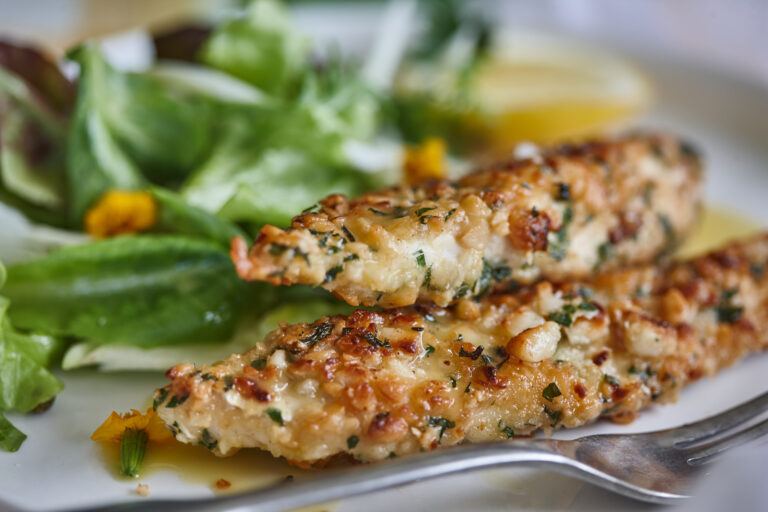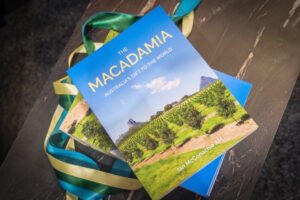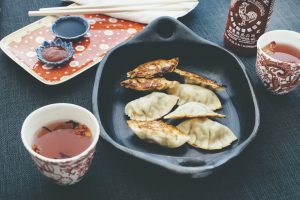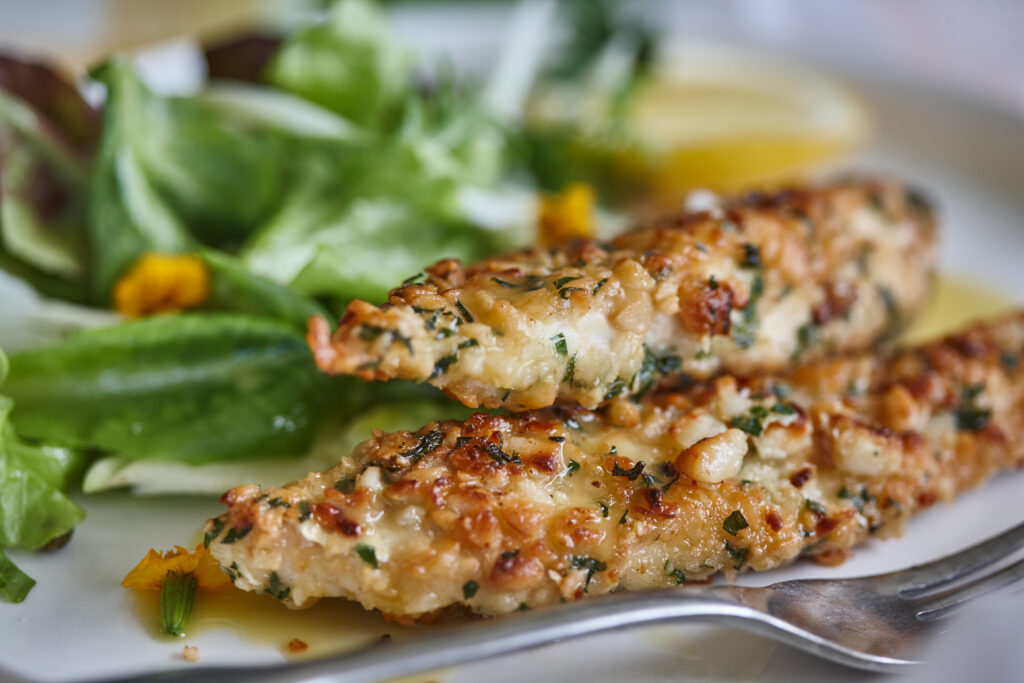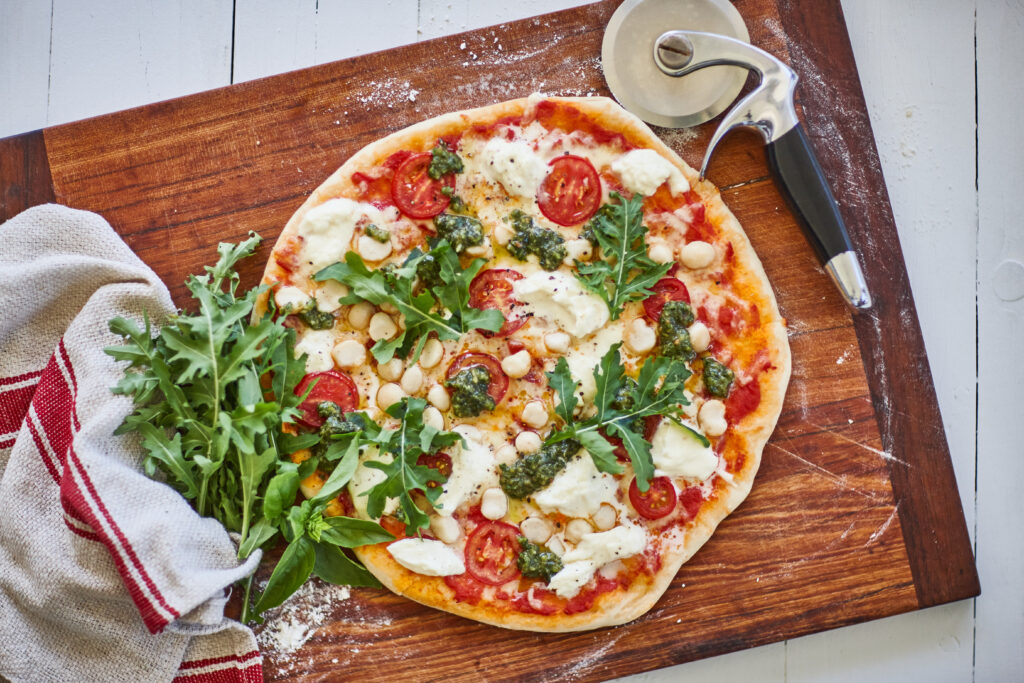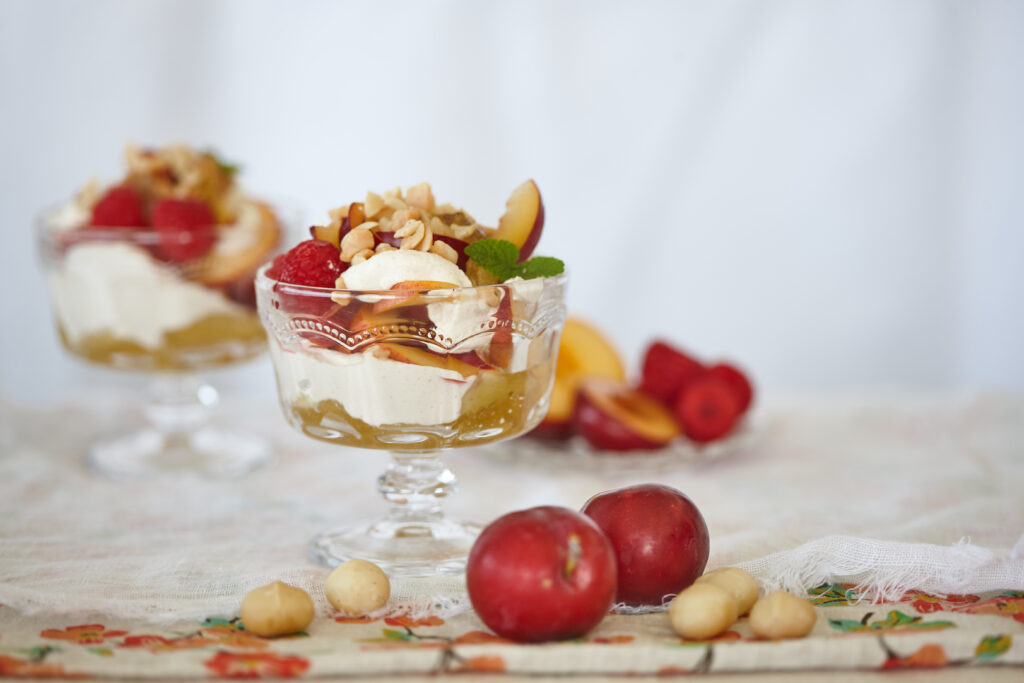Are you one of the lucky Australians that has a macadamia tree in your backyard? We’ve collated answers to your FAQs about caring for these potentially bounteous trees.
Many people are happily surprised to find that they have a macadamia tree in their suburban backyard, acreage block, pastoral property or even in an old orchard. They are often planted for their shady canopy, gorgeous pale flowers and, of course, their delicious buttery-flavoured nuts.
Here are our answers to some common questions we get asked about backyard macadamia trees on our website and Facebook page.
Do macadamia trees always produce nuts?
Macadamias are native to Northern NSW and South-Eastern Queensland so they will produce nuts well when planted in a climate zone similar to those areas. When planted in colder areas, macadamias may act as a shade-giving ornamental, but may not produce flowers or fruit well.
The trees are not particularly self fertile and need insects like bees to pollinate them. If there are no obvious bees, you may not get many nuts.
If there are creamy white or pinkish racemes (strands of flowers), then two or three of the flowers on each strand should turn into nuts. If there are no flowers, try adding animal manure or a complete native fertiliser to the ground below the tree and watering it in, either when you prune or in winter.
If there are flowers but they turn brown or drop, this may be because there was rain at the time of flowering which wets the pollen and prevents nut set. Or it may be because it was too dry so the flowers wilted. You can prevent this by watering the tree as soon as the green strands appear. It could also mean that a pest is eating the flowers. For small trees you can try a pyrethrum spray, but for larger trees there is little you can do in this case.
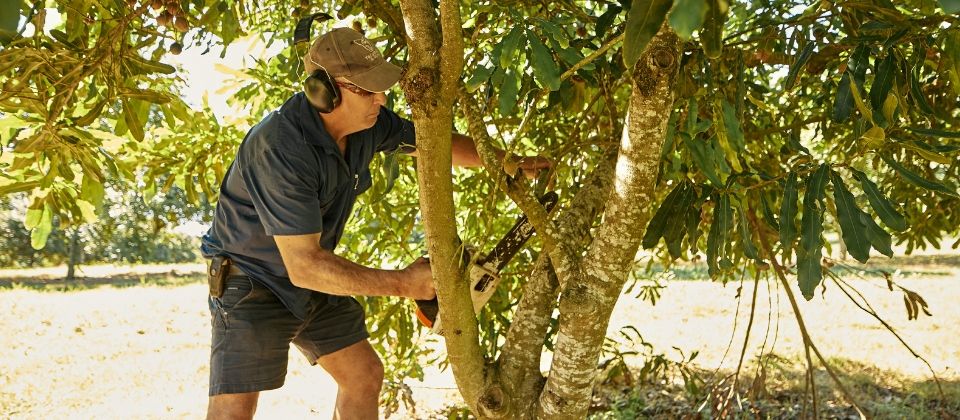
Do I need to prune a backyard macadamia tree?
Macadamia trees do not need pruning to flower and bear nuts however pruning is a good way to manage the size of your tree. Left unpruned, trees can grow up to 10m over several decades.
You can prune a macadamia tree to any height but to avoid having to cut large branches, it is best to do it regularly. First remove any dead or unhealthy branches, then remove any that are growing inwards or in an unwanted direction. Finally, cut to the shape and size you want.
Always make a clean cut and use a clean pruning saw or secateurs. If the stump is more than 5 centimetres, it may be worth using a commercial wound dressing.
When do I prune my macadamia tree?
The best time to prune is in May or June after harvesting the nuts, but it can be done at any time.
How far back do I prune a macadamia?
If the tree is very large and you would like to reduce the size it can be pruned heavily. If it is more of a maintenance prune to keep the tree manageable then a hedging is better. Either way it will grow back and produce nuts.
Do I need to water or fertilise my backyard macadamia tree?
Macadamia trees will grow without additional water or fertiliser. However, if you live in an area where the annual rainfall is less than 800-1000mm you may need to water during dry times.
Like most plants, macadamias will do better with the addition of fertiliser. Twice a year, in autumn and spring, add up to 1kg (depending on tree size) of a fertiliser for Australian native plants to the ground under the tree out to the drip line. Water in well. Alternatively, use any well-made garden compost or horse or cow manure. Avoid chicken manure unless it is very well aged.
To improve the general health of a neglected tree, you can add any organic material (grass clippings, chipped garden waste, macadamia shell/husk etc) to the ground under the tree in a one metre radius from the trunk. This will help the tree’s roots retain moisture, uptake nutrients from the soil and improve the overall soil condition.
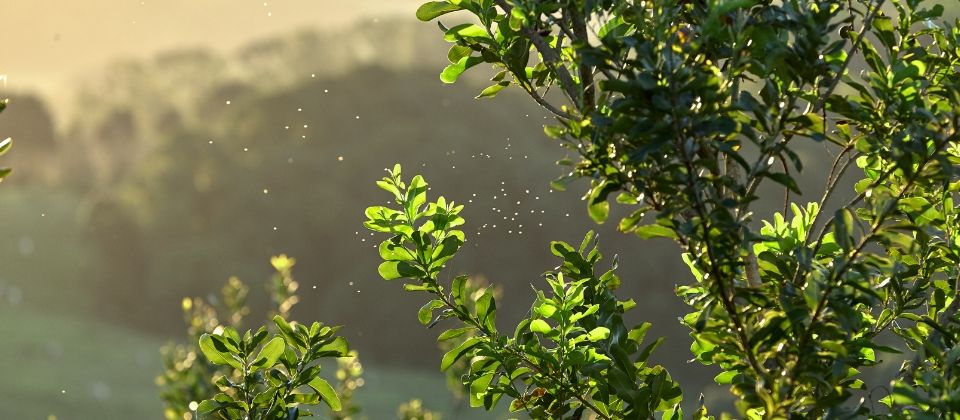
How do I tell when the macadamia nuts are ripe and ready to be harvested?
Macadamias will fall to the ground when they are mature so the best time to harvest the nuts is as soon as they drop. This should be between March and August with the majority falling in May and June.
If the nuts haven’t dropped naturally by Spring, you can remove them from the tree manually and they will still be mature and tasty.
Can I use the nut shells in my garden?
Yes. Macadamia shells are very hard and take a while to break down, but they make excellent mulch and can be added to your compost. The green husk that covers the nut on the tree but turns brown and splits on the ground should be removed at harvest, but can also be used as mulch or compost. If the husk is difficult to remove by hand, dry the nuts in a warm spot for a week and then try again.
Do roast the nuts before I crack them?
No. Crack the nuts first, then roast the kernels. The quicker you pick the nuts up from the ground, crack them and roast them, the fresher they will be and the better they will taste. Once you have cracked the shell it is best to store macadamia nuts out of direct sun in a vacuum sealed container or bag. Store in the fridge if you live in a warm area or in a cool dry place in colder climates.
Do you have a question about your backyard macadamia tree? Ask us on the Australian Macadamias Facebook page!
